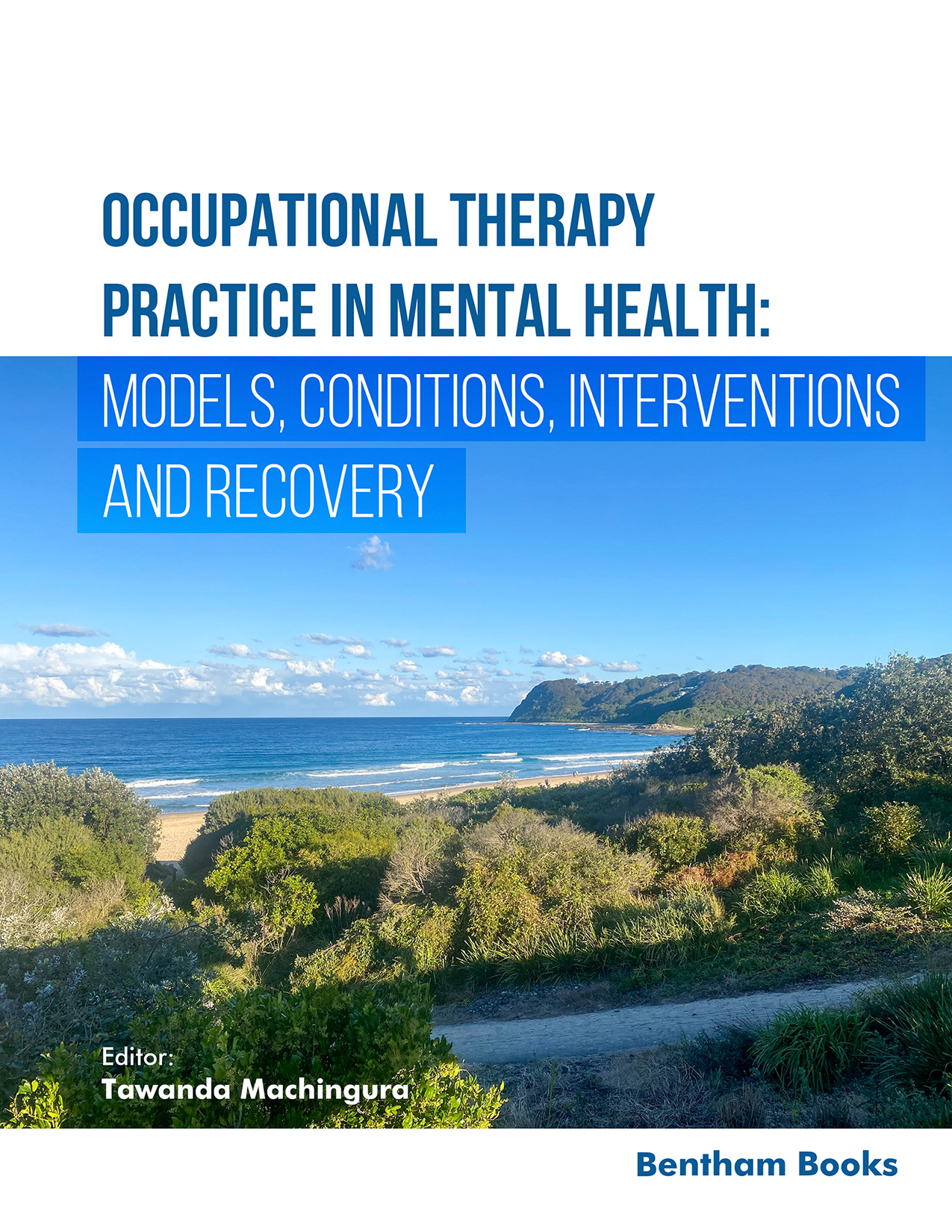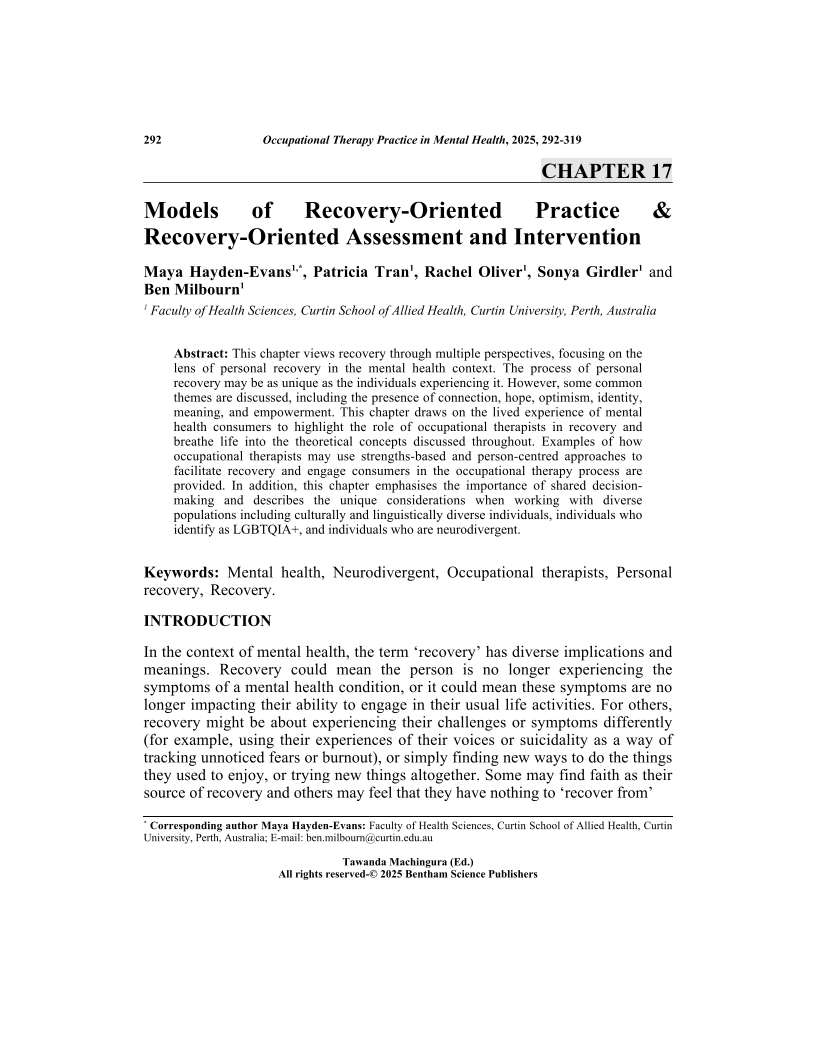Models of Recovery-Oriented Practice & Recovery-Oriented Assessment and Intervention

- Authors: Maya Hayden Evans1, Patricia Tran2, Rachel Oliver3, Sonya Girdler4, Ben Milbourn5
-
View Affiliations Hide Affiliations1 Faculty of Health Sciences, Curtin School of Allied Health, Curtin University, Perth, Australia 2 Faculty of Health Sciences, Curtin School of Allied Health, Curtin University, Perth, Australia 3 Faculty of Health Sciences, Curtin School of Allied Health, Curtin University, Perth, Australia 4 Faculty of Health Sciences, Curtin School of Allied Health, Curtin University, Perth, Australia 5 Faculty of Health Sciences, Curtin School of Allied Health, Curtin University, Perth, Australia
- Source: Occupational Therapy Practice in Mental Health: Models, Conditions, Interventions, and Recovery , pp 292-319
- Publication Date: October 2025
- Language: English
Models of Recovery-Oriented Practice & Recovery-Oriented Assessment and Intervention, Page 1 of 1
< Previous page | Next page > /docserver/preview/fulltext/9789815313710/chapter-17-1.gif
This chapter views recovery through multiple perspectives, focusing on the lens of personal recovery in the mental health context. The process of personal recovery may be as unique as the individuals experiencing it. However, some common themes are discussed, including the presence of connection, hope, optimism, identity, meaning, and empowerment. This chapter draws on the lived experience of mental health consumers to highlight the role of occupational therapists in recovery and breathe life into the theoretical concepts discussed throughout. Examples of how occupational therapists may use strengths-based and person-centred approaches to facilitate recovery and engage consumers in the occupational therapy process are provided. In addition, this chapter emphasises the importance of shared decision-making and describes the unique considerations when working with diverse populations including culturally and linguistically diverse individuals, individuals who identify as LGBTQIA+, and individuals who are neurodivergent.
-
From This Site
/content/books/9789815313710.chapter-17dcterms_subject,pub_keyword-contentType:Journal -contentType:Figure -contentType:Table -contentType:SupplementaryData105

